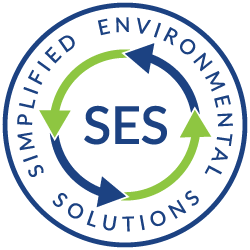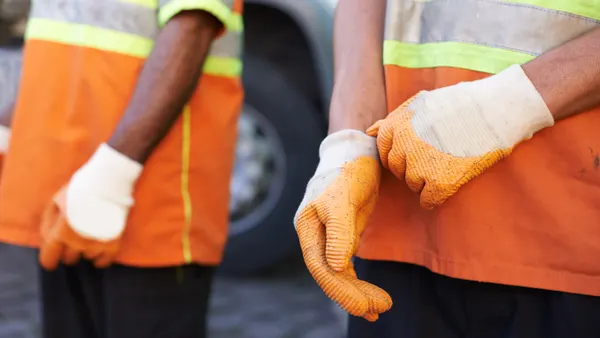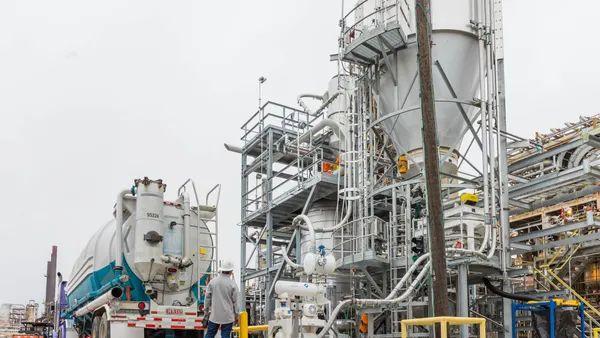Washington is now the seventh U.S. state with a packaging EPR law.
Gov. Bob Ferguson signed SB 5284 into law on Saturday, the culmination of years of advocacy to get a bill across the finish line. He called it the "biggest overhaul of our recycling system in decades" during the signing.
Now that Washington has adopted the law, the whole West Coast of the U.S. has an EPR for packaging program. California and Oregon have also adopted such laws.
The Recycling Reform Act creates an extended producer responsibility program for most kinds of paper and packaging. It also establishes a statewide recycling collection list and calls for adding curbside recycling for all homes that already have curbside trash service. Ferguson noted at the bill signing that this could add service for hundreds of thousands of households.
It also calls for the state’s Department of Ecology to conduct and submit a statewide recycling needs assessment, due by Dec. 31, 2026, and update it with any new data by Dec. 31, 2027.
Producers would ultimately reimburse waste service providers 90% of recycling system costs, and that funding could be used for investment in system improvements, according to the bill. A producer responsibility organization would develop, implement and finance the program, and Ecology would oversee it.
According to the bill, reimbursements for recycling service providers would be phased in over time: 50% by Feb. 15, 2030, 75% by the same date in 2031 and 90% come 2032.
There are exemptions for certain types of food and medical packaging. Covered materials can also be exempted if a producer demonstrates a reuse or recycling rate of 65% for three consecutive years. That threshold rises to 70% come 2030.
Service providers seeking reimbursement for services must register with Ecology, including MRFs. MRF operators receiving covered materials would need to annually report data such as volumes and quality of the material. Starting in 2028, MRFs that manage more than 25,000 tons of covered products a year would need to ensure they pay workers a “minimum industry standard compensation.”
Other implementation dates
-
Jan. 1, 2026Producers must appoint one or more producer responsibility organizations
-
Jan. 1, 2026Department of Ecology must appoint and establish EPR advisory council
-
Jan 31, 2026Department must facilitate registration by service providers
-
March 1, 2026PRO must register with the department
-
July 1, 2026Producers must be members of a PRO
-
Sept. 1, 2026PRO must submit one-time payment to department
-
Oct.1, 2026Department develops initial statewide collection lists
-
Dec. 31, 2026Department completes statewide needs assessment
-
May 1, 2027PRO pays annual registration fee to department
-
Dec. 31, 2027Department completes statewide needs assessment
-
2028Adopt rules (ideally to be harmonized with other states)
-
Oct. 1, 2028PRO submits plan to department for approval
-
Jan.31, 2029Department creates a model comprehensive solid waste plan amendment for use by cities and counties
-
March 1, 2029Producers that aren’t registered with a PRO may not introduce covered materials in the state
-
March 1, 2029Department initiates enforcement activities with respect to noncompliant producers that are not members of the PRO
-
Jan. 1, 2030Implement approved plan
-
2031MRF operators must submit responsible market certification for each destination where commodities containing covered materials were sent
-
July 1, 2031Annual report due to department
-
Jan. 31, 2032Equity study due to legislature
The bill’s sponsors, state Sen. Liz Lovelett and Rep. Liz Berry, said EPR for packaging would help improve recycling rates and divert more material from landfills. The bill received support from Seattle Public Utilities and multiple local governments. It was backed by groups such as Zero Waste Washington, which called this its top-priority bill, as well as the Northwest Product Stewardship Council, Ameripen, the Association of Plastic Recyclers and The Recycling Partnership, among other groups.
The EPR Leadership Forum also testified in support. That group is made up of many of the brands that were founding members of the PRO Circular Action Alliance, including Coca-Cola, Kraft Heinz, PepsiCo, Target, Walmart and more.
The National Stewardship Action Council applauded the passage of Washington’s bill, saying the state legislature recognized “that true producer responsibility means closing the recycling access gap, delivering clear and consistent public education, and honoring the essential workers who power our recycling system.”
But numerous haulers opposed the bill, including WM, Republic Services and Waste Connections, as well as the Washington Refuse & Recycling Association. These groups have historically opposed similar EPR bills in the state and said the program would raise costs for residents. The Consumer Brands Association was also against it.
Here are some other states where EPR bills are still in play this year:
- Connecticut: Legislators introduced an EPR study bill. The session ends June 4.
- New York: The Packaging Reduction and Recycling Infrastructure Act, supported by environmental groups, would fund recycling efforts and ban certain chemicals in packaging, such as PFAS. A competing bill favored by some brands, the Affordable Waste Reduction Act, calls for a statewide recycling needs assessment and would establish a PRO, among other steps. New York’s legislative session ends on June 12.
- Massachusetts: An EPR for packaging bill would set combined reduction and recycling rates. A state commission is also studying packaging EPR this year.
- New Jersey: An EPR bill is moving through committee. It would require a state needs assessment and set certain source reduction and recyclability requirements.















